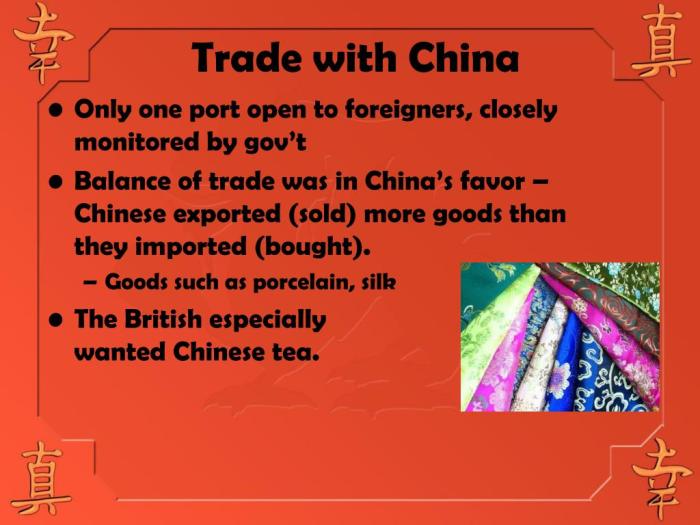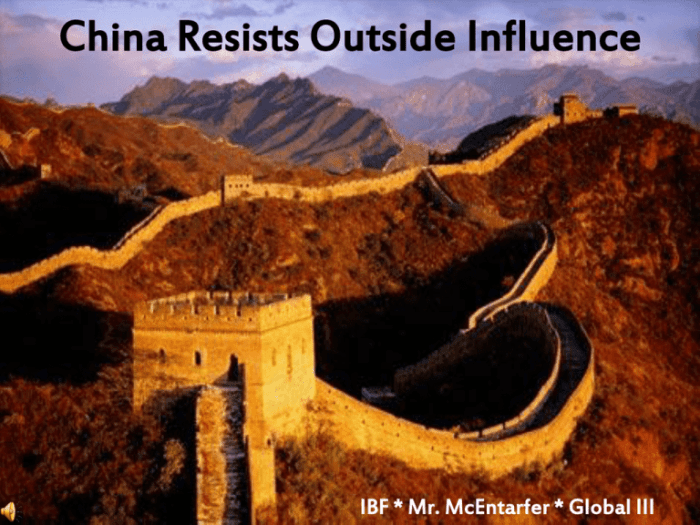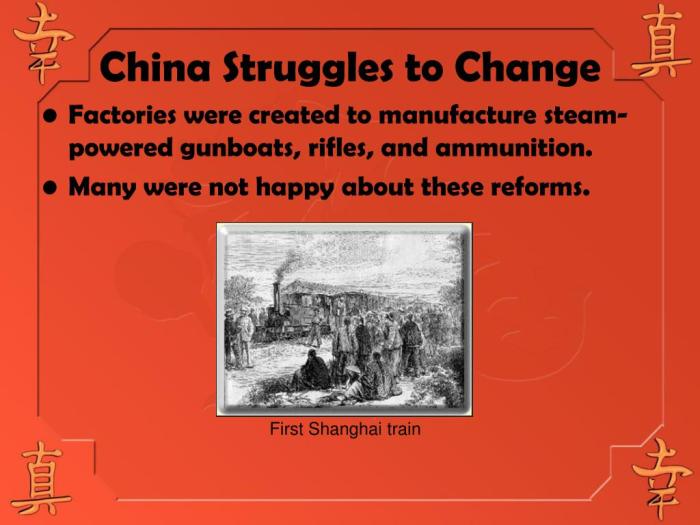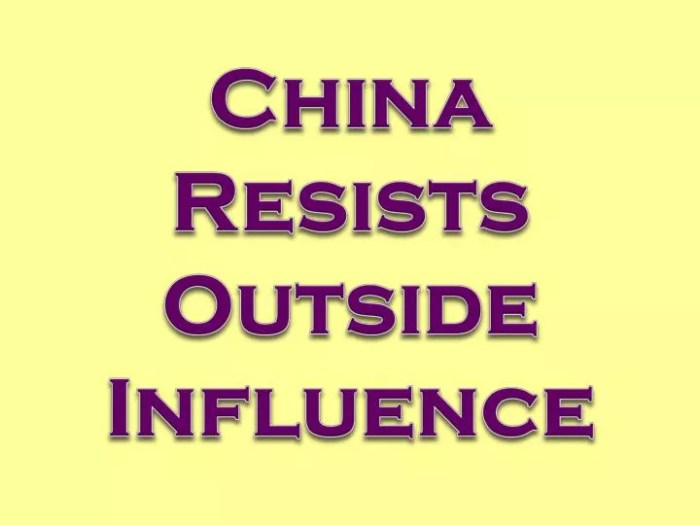China Resists Outside Influence Worksheet Answers delves into the complex and multifaceted history of China’s resistance to foreign influence. From its historical roots in isolationism and cultural superiority to modern forms of resistance such as censorship and economic coercion, this worksheet explores the motivations, methods, and consequences of China’s enduring determination to maintain its autonomy.
The content of the second paragraph that provides descriptive and clear information about the topic
China’s Historical Resistance to Outside Influence

China’s resistance to outside influence has a long and complex history, rooted in a combination of geographical isolation, cultural superiority, and political ideology. The country’s vast size and natural barriers, such as the Great Wall, Himalayas, and deserts, have historically protected it from foreign invasions and cultural assimilation.
Additionally, China’s Confucian-based culture emphasized self-sufficiency, social harmony, and respect for tradition, leading to a sense of cultural superiority and a reluctance to adopt foreign ideas or influences.
Isolationism and Cultural Superiority, China resists outside influence worksheet answers
During the Ming Dynasty (1368-1644), China implemented a policy of isolationism, known as the “Haijin” policy, which restricted foreign trade and travel to certain ports. This policy was driven by a belief in the superiority of Chinese culture and a desire to protect the country from foreign influences.
Even after the end of the Ming Dynasty, China continued to maintain a cautious approach to foreign relations, limiting its interactions with the outside world and maintaining a sense of cultural superiority.
Modern Forms of Resistance to Outside Influence

In the modern era, China has continued to resist outside influence through a variety of methods, including:
- Censorship:China maintains a strict censorship regime that restricts access to information and media from outside the country. This includes blocking websites, filtering search results, and monitoring social media.
- Propaganda:The Chinese government uses propaganda to promote its own narrative and control the flow of information within the country. This includes promoting positive images of China and its leaders while downplaying or discrediting negative information.
- Economic coercion:China has used its economic power to pressure other countries to conform to its interests. This includes imposing trade sanctions, limiting access to markets, and investing in infrastructure projects to gain political influence.
Impact of China’s Resistance on International Relations: China Resists Outside Influence Worksheet Answers

China’s resistance to outside influence has had a significant impact on its relationships with other countries:
- Tensions with Western countries:China’s censorship, propaganda, and economic coercion have raised concerns among Western countries about the country’s intentions and its commitment to international norms.
- Challenges to global cooperation:China’s resistance to outside influence has made it more difficult to address global challenges, such as climate change and nuclear proliferation.
- Potential for conflict:If China’s resistance to outside influence continues to escalate, it could increase the risk of conflict with other countries, particularly in the Asia-Pacific region.
Future Prospects for China’s Resistance

The future of China’s resistance to outside influence is uncertain. Several factors will likely shape the country’s approach, including:
- Globalization:Increased globalization and interdependence may make it more difficult for China to maintain its isolationist policies.
- Technological advancements:Advances in technology, such as the internet and social media, are making it more challenging for governments to control the flow of information.
- Shifting geopolitical dynamics:The rise of new global powers and the changing balance of power could influence China’s foreign policy and its willingness to engage with the outside world.
Key Questions Answered
What are the historical origins of China’s resistance to outside influence?
China’s resistance to outside influence has deep historical roots, dating back to the Qin dynasty’s isolationist policies and the belief in Chinese cultural superiority.
How has China resisted outside influence in the modern era?
In the modern era, China has employed various methods to resist outside influence, including censorship, propaganda, economic coercion, and diplomatic isolation.
What are the implications of China’s resistance to outside influence for international relations?
China’s resistance to outside influence has significant implications for international relations, potentially leading to conflict or cooperation with other global powers.